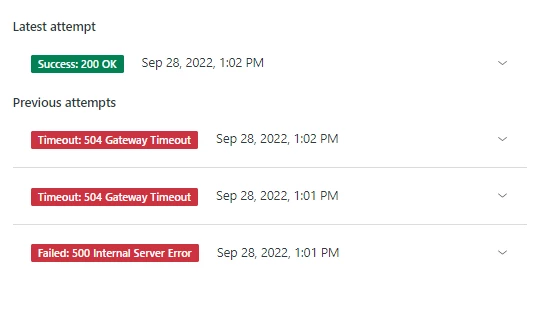Hi,
Zapier Status (https://status.zapier.com/) says instant triggers were 100% reliable yesterday, but I have a webhook from Zendesk to Zapier which received some 500 Server Error as well as some 504 Gateway Timeout errors between 1pm - 1:20pm eastern time yesterday.

That’s how it looks on the Zendesk side. In Zapier, the Zap with the webhook trigger actually triggered 3 times.
The incoming webhooks from Zendesk included a Request Header titled X-Zendesk-Webhook-Invocation-Id which ideally should permit deduplication of requests in a situation like this. If Zendesk encounters a 5xx error and retries, but Zapier successfully processed the webhook trigger despite the error, then the next request bearing the same X-Zendesk-Webhook-Invocation-Id header should be responded with a 200 OK response to tell Zendesk it’s not necessary to keep retrying, but should not trigger the Zap.
I understand of course that the X-Zendesk-Webhook-Invocation-Id header is not a standard header, is there any way to indicate to Zapier in the trigger settings what header to look for to deduplicate?
If not, is this forum the best place to make this a feature request?
